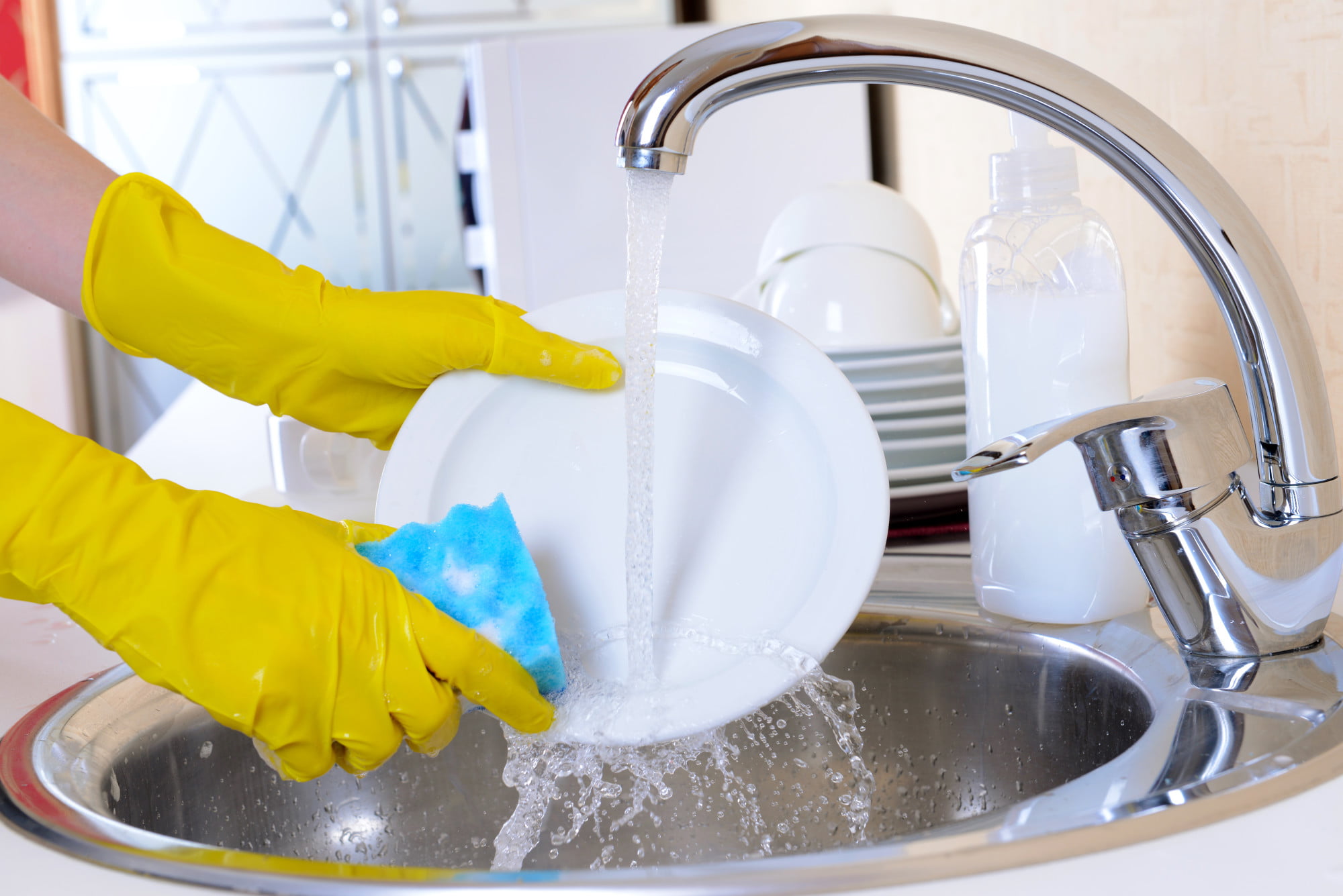The guidelines are clear: To protect yourself from germs that can lead to viruses like influenza and COVID-19, you must wash your hands often and thoroughly for twenty seconds. But what about germs on your dishware?
We spoke to an infectious disease specialist to learn how dish soap can kill germs and the best way to sanitize dishes.

Dish soap vs. antibacterial soap vs. the dishwasher
While you can buy antibacterial dish soap from brands like Palmolive and Dawn, they really arent necessary. The FDA has said that there is no concrete evidence showing that antibacterial soap is more effective at removing germs than regular dish soap and water. Its more about the actual physical action of washing. Scrubbing with soap will create friction that lifts off microcrobes and grease, getting the job done.
If your household prefers to use the dishwasher, you can rest assured that the germs and viruses are being destroyed, Phillips says. Major components of many dish detergents are enzymes, which clean various particles off the dishes since they have the ability to break down starches and proteins. Most detergents also contain some sort of bleach, which is effective in killing bacteria and viruses.
However, what really destroys the virus in the dishwasher is the scalding hot water. Phillips says temperatures around 55º Celsius, or 130º Fahrenheit, can denature and destroy viruses. As long as you leave your dishwasher settings on hot, this will certainly do the trick. Advertisement
Dish soap does get rid of germs and viruses
Dish soaps main function is to get grease and food residue off of your dishes. However, dish soap is quite effective at washing germs and viruses off of your dishes too, says Joy Phillips, PhD, research assistant and professor of immunology at San Diego State University. Like hand soap, dish soap does not kill bacteria, but it lifts them off surfaces so that they can be washed away by water.
Phillips says that any soap will work well against washing away bacteria and inactivating viruses, and with the COVID-19 virus in particular, part of this has to do with the fact that its an enveloped virus. “This [COVID-19] virus has what they call a lipid coat, which basically means its surrounded by a bubble of fat. So, soap disrupts the fat, breaks apart that liquid membrane, and that ends up destroying the virus,” says Phillips. Advertisement
Can You Use Dish Soap in the Washer? (+Some better alternatives)
Are dishwashing liquids antibacterial?
When you diligently wash every single dish in your sink with sudsy dish soap and warm water, you probably assume that your sparkling clean dishes are also disinfected. And while we hate to be the bearers of disappointing news, we thought it was important to point out that most dishwashing liquids are actually not antibacterial.
Should you use dishwashing liquid?
While dishwashing liquid is excellent for cleaning your dishes, it’s essential to remember that like any product it must be used responsibly. In this article, we’d like to offer some helpful tips on using dishwashing liquid, their do’s and don’ts, and how to maximise sustainability and safety in your everyday dishwashing practice. 1.
Can you use dishwashing liquid to clean a house?
You can even combine it with vinegar for a powerful DIY cleaner that can be added to a spray bottle or refillable dish wand. Dishwashing liquid can be used to clean almost anything in the house. (Getty Images/iStockphoto) It’s something professional cleaners and cleaning fans on TikTok and Instagram have discovered too.
Do you dissolve dishwashing liquid before washing?
Dissolve in Water You should always dissolve a spoonful of dishwashing liquid in a water bowl before washing the dishes. Dissolving makes your dishwashing liquid last longer and gives a shine to your dishes. 3. Read the Label Before Using
